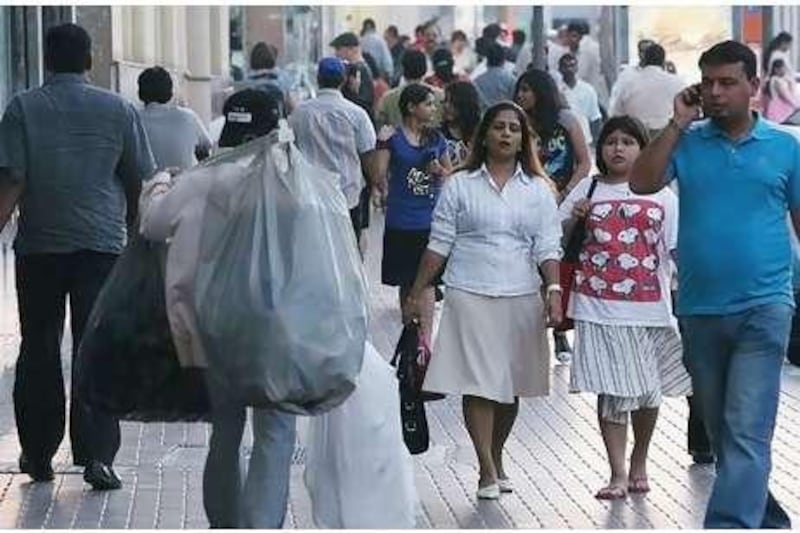ABU DHABI // A full census planned for April was cancelled, but an expert said yesterday that the UAE needs one to get a more accurate count of the population. The National Bureau of Statistics said on Saturday that the population had rocketed to 8.19 million, about double the number counted in the 2005 census.
The bureau's Report on Economic & Social Dimension 2009 said the country's population stood at 8.07 million in 2008. The estimation was based on data obtained from the Government's administrative records, such as the number of residency visas issued and the number of people with identity cards. "Anything short of a census you have to make assumptions," said Paul Dyer, a research associate at the Dubai School of Government.
"Ideally, you want to have a full door-to-door census, which serves as a baseline for doing more shortcut estimates." The National Human Resources Development and Employment Authority estimated in January that the population would jump to 7.55 million compared with 5.63 million in 2006. Government officials said last summer that more than 10,000 people would be deployed to carry out a census that was planned for April. The preparation was overseen by the Supreme Committee of Census, chaired by Sultan al Mansouri, the Minister of Economy. No official explanation was given for the cancellation of the plans.
In 1975, the first census in the UAE put the population at 557,887, with 170,156 of those (30.5 per cent) Emirati. The last census was conducted in 2005. It put the population at 4,104,695 (with 20.1 per cent being nationals), compared with the 2,411,041 total from the 1995 census. The population had increased by 58.7 per cent in a decade. The gap between the 2005 and 2010 figures has raised questions about accuracy and methods. "One of those numbers is either a significant over-estimation or a major underestimation," said Mr Dyer.
The bureau did not sketch out in its report the methodology it had used to make its estimates. The only methodological statement said the figures were derived from "estimations based on administrative records". One possible method could be through assuming a growth rate, based on growth in previous years and on the historical difference between birth and mortality rates, and an assessment of the difference between the number of new visas issued and visas cancelled - in other words, net immigration. This method was used by the Dubai Statistics Centre (DSC) last year. The centre estimated that the population was still growing, at an annual rate of nearly eight per cent.
According to Afas Buassaiba, the centre's director of population and social statistics, the gap between the numbers arriving and leaving Dubai was very small. With only a small difference between the number of visas issued and cancelled, almost all of the projected rise resulted from an assumed growth rate. That figure was based on the average in the boom years between the censuses of 1995 and 2005. Based on that, the DSC derived an average growth for Dubai of 7.6 per cent a year - almost all the total projected growth.
It concluded that between April and June last year, the number of people living in Dubai had increased by roughly 31,000 to more than 1,707,000 people - a little under two per cent. These estimates mean that Dubai population has increased by 124,000 people last year, which is nearly the number of the increase in population across the country, according to federal statistics released this week. Mr Dyer, however, said it was hard in a country like the UAE to make accurate estimations of its population because of the conservative nature of the society - even with a census.
"When you do a census you can underestimate the population because people will be hesitant to reveal information, some people are traditional and don't want to reveal information," he said. "When you go to a house with people living illegally, people don't want to give information." He said administrative records "might be more accurate than the census" because the Ministry of Interior would know how many people are entering the country.
The problem was that administrative records could not account for people who left the country without cancelling visas or those with residency visas but live outside the country. @Email:mhabboush@thenational * With additional reporting by Hugh Naylor






